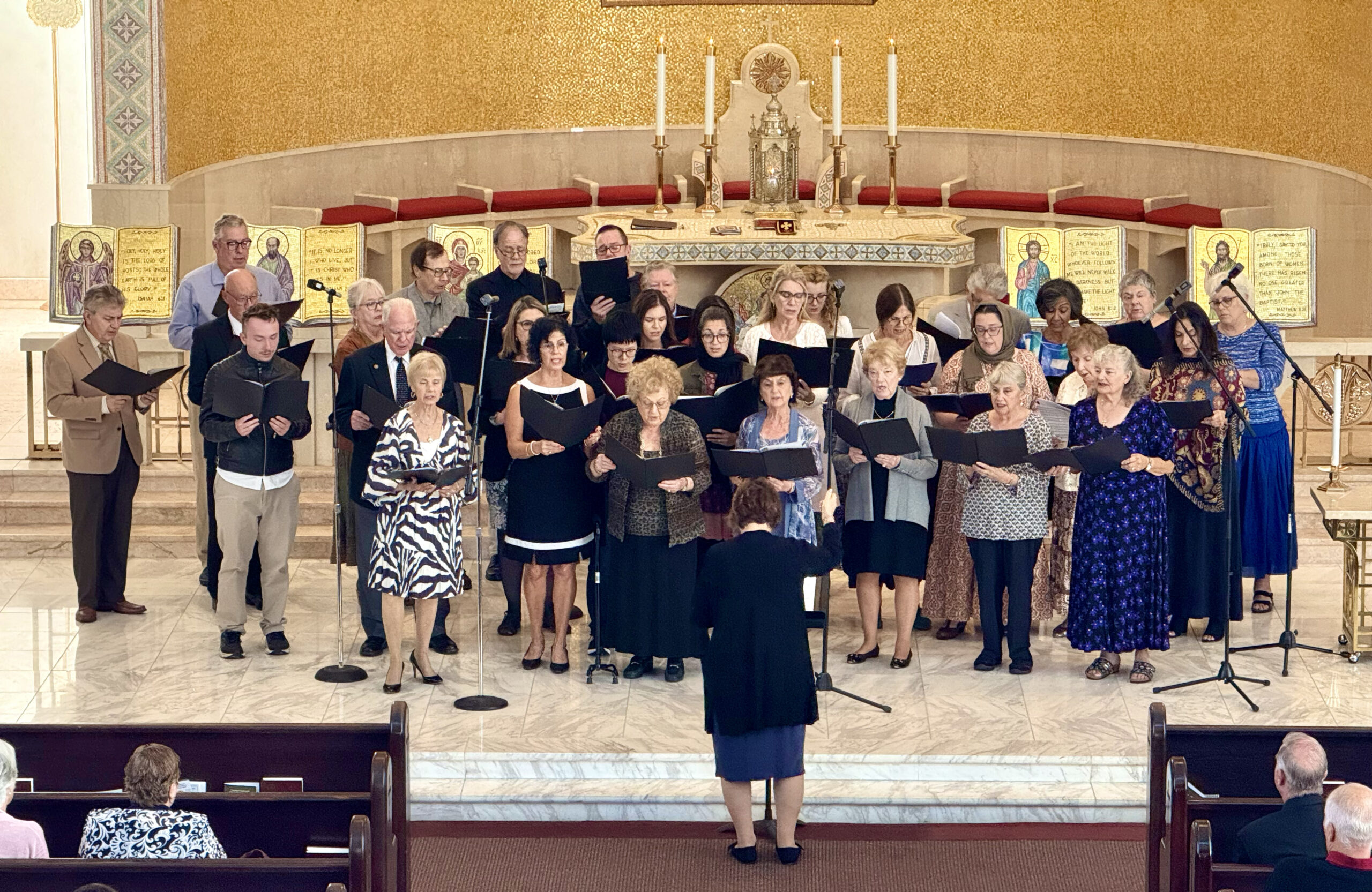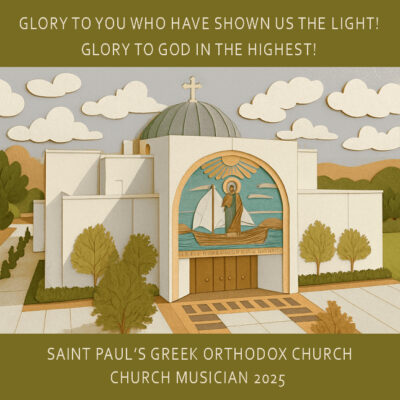Church Music

While we are striving for greater congregational participation in the Liturgy, are we also further growing and developing the formal role of Church Musicians in our Youth and Adult Choirs and Chant groups. So if you are a singer interested in formally learning one of the four parts the choir sings (bass, tenor, alto, soprano) or participate in a chant group, please send an email to: info@stpaulsirvine.org.

Church Music Sunday - 2025
Saint Paul's Church Musicians
Saint Paul’s Church Musicians are honored every year on the designated nationally in the Greek Orthodox Archdiocese as “Church Music Sunday: (the Sunday nearest the Feast of Saint Romanos the Melodist, commemorated October 1).
On October 5, 2025, our Church Musicians offered the Cherubic Hymn by Tikey Zes, after which each Church Musician received a tile commemorating the parish’s appreciation for their service.

The following is excerpted from “ORTHODOX MUSIC TODAY: INTEGRATING OUR TRADITIONS,” By Archpriest Vladimir Soroka (of blessed memory), Word Magazine November 1994:
Our services are complex and require the services of a trained choir director and a competent choir. In fact, in my opinion, our choirs have seen a decline in the past twenty years and I want to see that improve. No parish should be without the service of a liturgical choir. Nevertheless, I would also like to see every parish take time to have the congregation participate by corporately singing some of the responses and hymns of the services.
In the most ancient Orthodox prayer books, the services were always written as a dialogue between “Priest” and “People.” The prayer book never said “Priest” and “Choir.” This was for obvious reasons. Everyone participates in the service. You cannot respond by just sitting and listening. When the Scripture admonishes us to “sing and make melody”, does it refer only to the choir? The very word “liturgy” means “common work.” That is, it is the common task of everyone in that church to sing praises to God. In fact, we might say, it is everyone’s solemn duty! One might answer, “Well, if the congregation wants to sing, they can sing with the choir.” Unfortunately, people tend to sit back and “enjoy” the service. They become somewhat of an audience. But is the choir’s task to “entertain” the congregation? No, we must be very careful to guard against such perceptions!
Another reason that congregational singing is essential is that it guards against passivity among the congregation. The absence of at least occasional congregational singing compels them to be passive listeners and mere viewers of the divine services. People who are passive in church tend to complain about the length of services and say things like “they don’t get anything out of coming to church. Congregational singing wisely employs every voice, because every voice was created by God, and every voice should be thanking Him.
Finally, having the entire congregation sing together is a living icon of the church being of “one mind and one heart.” There is a powerful unity that is expressed when the entire congregation sings from the very depth of their souls. St. Ignatius of Antioch said, “All of you together become a choir so that being harmoniously in concord. and receiving the keynote from God, in unity you may sing with one voice through Jesus Christ to God the Father,” (to the Ephesians,.4).



